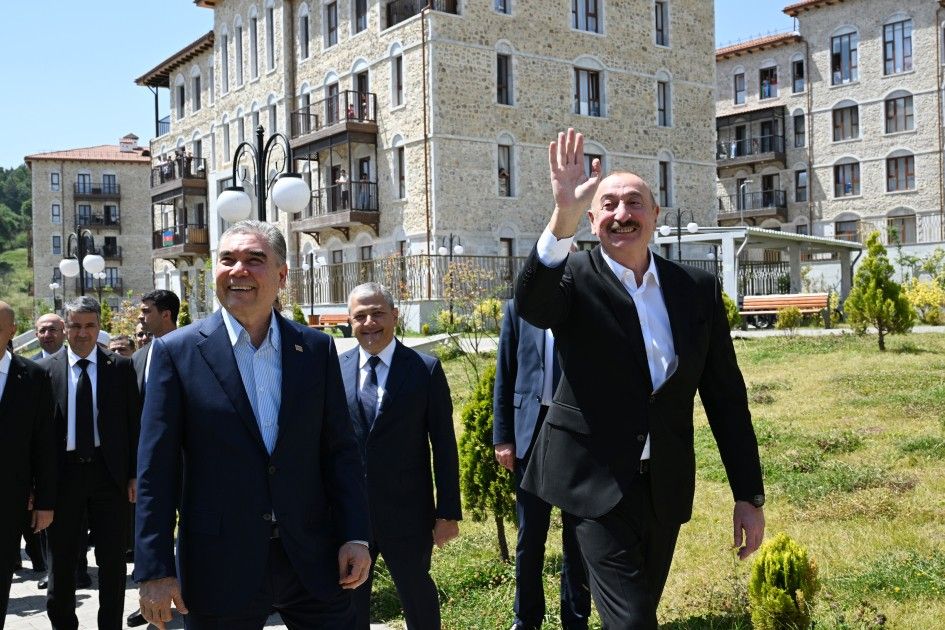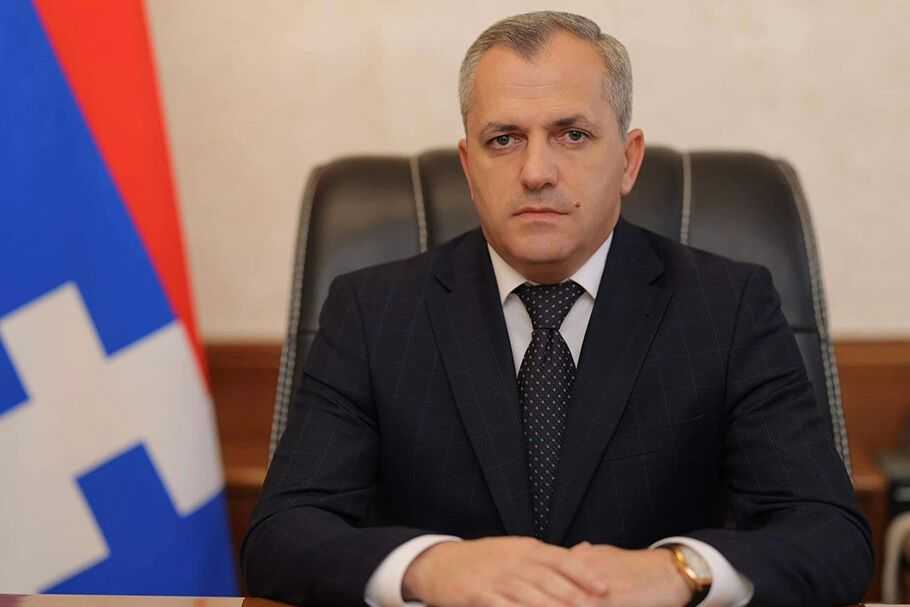War of words after Azerbaijan demolishes Nagorno-Karabakh sculpture of Russian-Armenian painter

A new round of rhetorical conflict has broken out between Azerbaijan and Russia, this time related to the destruction of a statue portraying Russian–Armenian painter Ivan Aivazovsky in Nagorno-Karabakh.
Aivazovsky was born in 1817 in Crimea, modern-day Ukraine, to Armenian parents, and was baptised as Hovhannes Aivazian. He was a popular painter of the era and remains an important cultural figure in Russia, Armenia, Ukraine, and elsewhere.
Describing the removal of the sculpture, the Russian state-run media outlet TASS published an article on Thursday using the word Stepanakert to refer to Nagorno-Karabakh’s capital, which is called Khankendi in Azerbaijani.
In response, the Azerbaijani state-run media outlet Azertac wrote an official complaint, noting that TASS had opted to use the name Khankendi in previous articles earlier in July.
‘This attempt to revive an old name alien to the Azerbaijani people within the walls of TASS has caused bewilderment and raised a legitimate question: what has suddenly changed over the past week for the Russian state news agency to “resurrect” a place name from the Soviet era?’, Azertac wrote.
‘For its part, Azertac is authorised to state that it remains committed to maintaining good relations with TASS, while expecting its Russian colleagues to correct the mistake. If the Azerbaijani side does not see reciprocity and understanding, we will, with great regret, be forced to recall and begin using the historical names of the cities of Kaliningrad (Königsberg), Orenburg (Orynbor), Volgograd (Sarysu), Grozny (Solzha-Gala), Novorossiysk (Sudzhuk-Kale), Yuzhno-Sakhalinsk (Toyohara), Yuzhno-Kurilsk (Furukamappu), Petrozavodsk (Petroskoi), Izhevsk (Izhkar), the River Volga (Itil), and several others’, Azertac wrote, referring to several cities and places in Russia.
The headline of the original article in TASS was then later changed, replacing Stepanakert with Nagorno-Karabakh.
Nonetheless, the text of the article retained the usage of the word Artsakh, an Armenian term for Nagorno-Karabakh.
On Friday, the article was changed again, replacing Nagorno-Karabakh with just Karabakh, with another change of Stepanakert to Khankendi within the text, resulting in a mixed use of terminology.
‘The new authorities of the region have demolished the monument to Ivan Aivazovsky in Khankendi, erected in Stepanakert in 2021’, the revised version of the article read.
The press agency of Azerbaijan’s Foreign Ministry told the pro-government media outlet APA that the sculpture had been ‘illegally installed on our territory by the Russian peacekeepers without the permission of the Azerbaijani side’, which ‘represented a clear manifestation of disrespect by Russia towards the sovereignty’ of Azerbaijan.
In a comment to the pro-Kremlin media outlet Lenta, Russian MP Konstantin Zatulin said, ‘besides the fact that this is a barbaric action, it, like many barbarities, is frankly stupid and unintelligent. Aivazovsky is a universally recognised genius of painting, who was valued not only in our Russian Empire, but throughout the world’.
‘This is barbarism and attempts to somehow justify this barbarism by tense relations with today’s Russia or, let’s say, today’s Armenia. And the country’s leadership either turns a blind eye or directly encourages these barbaric actions’, Zatulin concluded.
Russian Foreign Ministry spokesperson Maria Zakharova also commented on the removal of the statue, sharing several of Aivazovsky’s paintings on her Telegram channel, along with the caption ‘somewhere they are removing his statue, and I am dismantling the ignorance of those who have never seen his paintings’.
On Friday, Sergei Aksyonov, the head of Russian-occupied Crimea, criticised the destruction of the monument.
‘We are ready to take the destroyed monument, restore it, and install it in a worthy place’, he wrote on Telegram.
The back-and-forth comes amidst a long period of sharp deterioration of relations between Azerbaijan and Russia.
The breakdown can be linked to the deadly crash of an Azerbaijan Airlines (AZAL) flight in December 2024, which Baku has blamed on Russian air defence, as well as the deaths of two ethnic Azerbaijanis during a Russian police raid in Yekaterinburg in June 2025.
For ease of reading, we choose not to use qualifiers such as ‘de facto’, ‘unrecognised’, or ‘partially recognised’ when discussing institutions or political positions within Abkhazia, Nagorno-Karabakh, and South Ossetia. This does not imply a position on their status.











